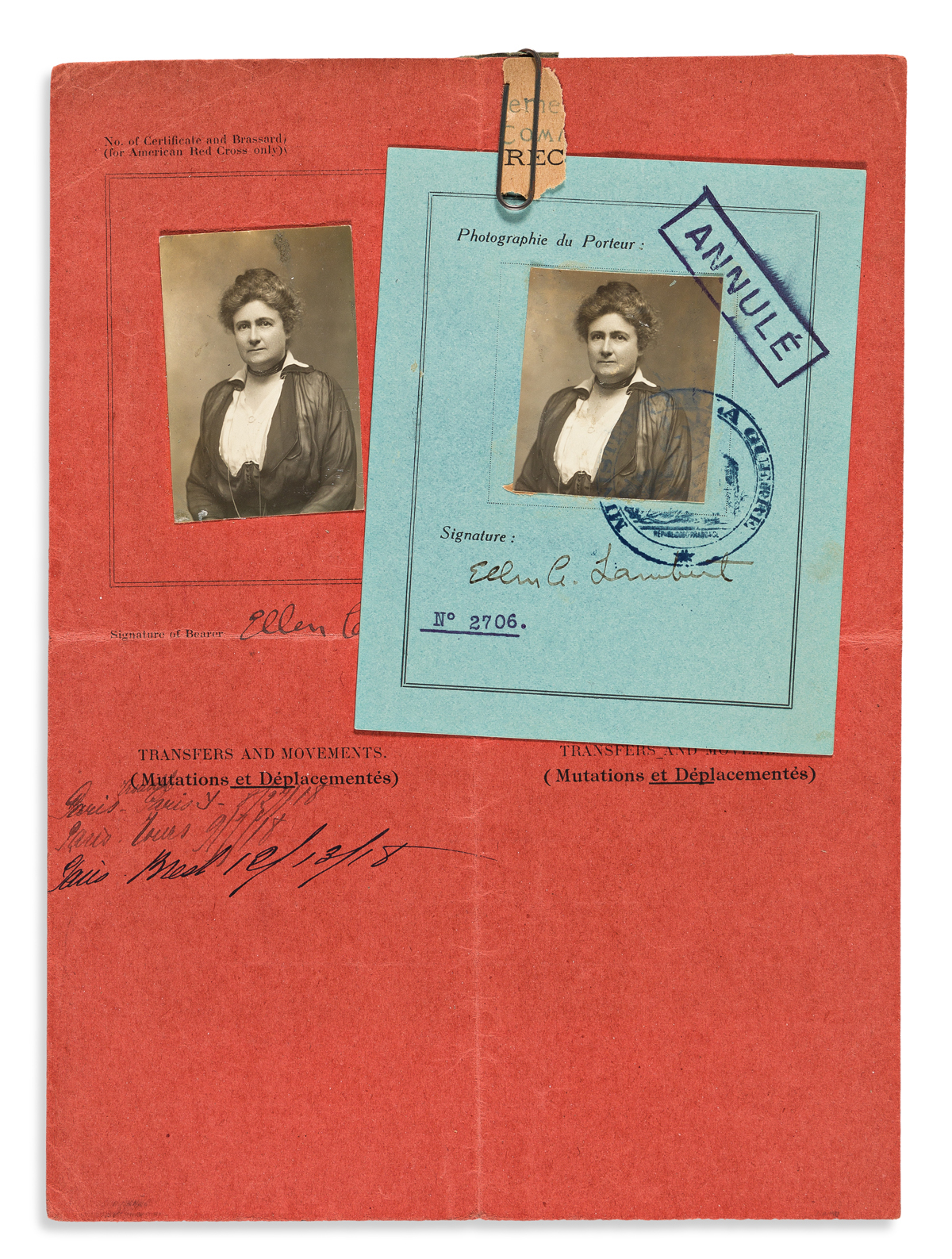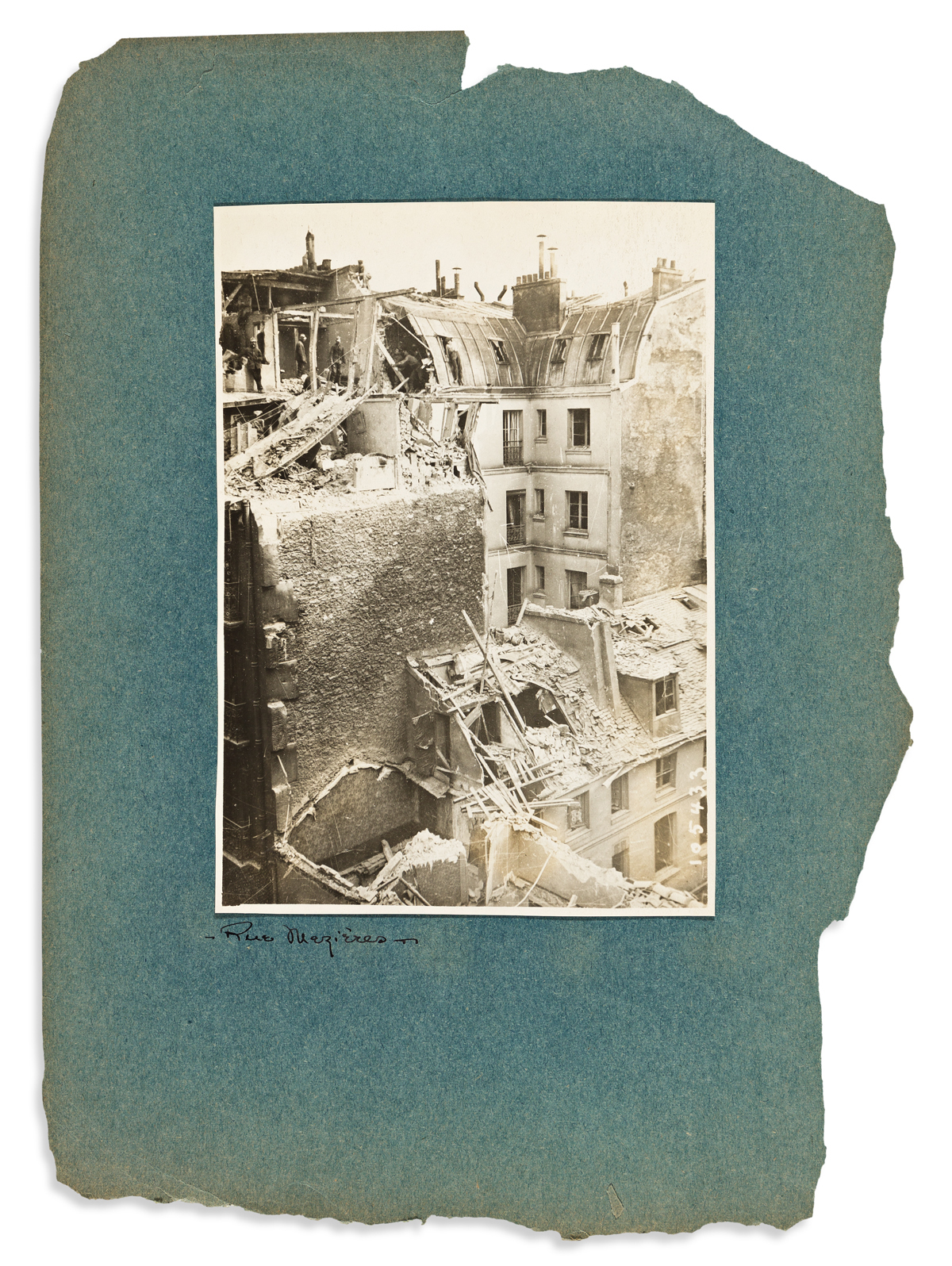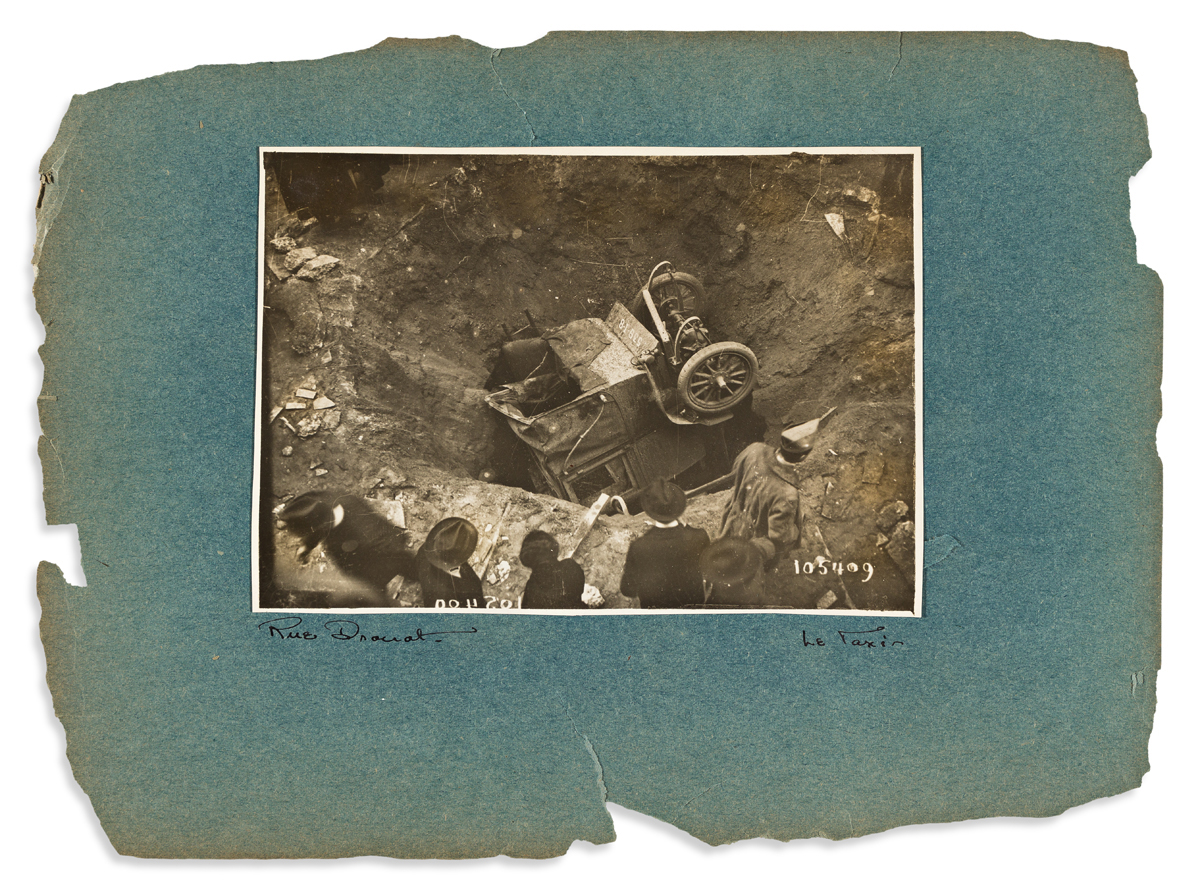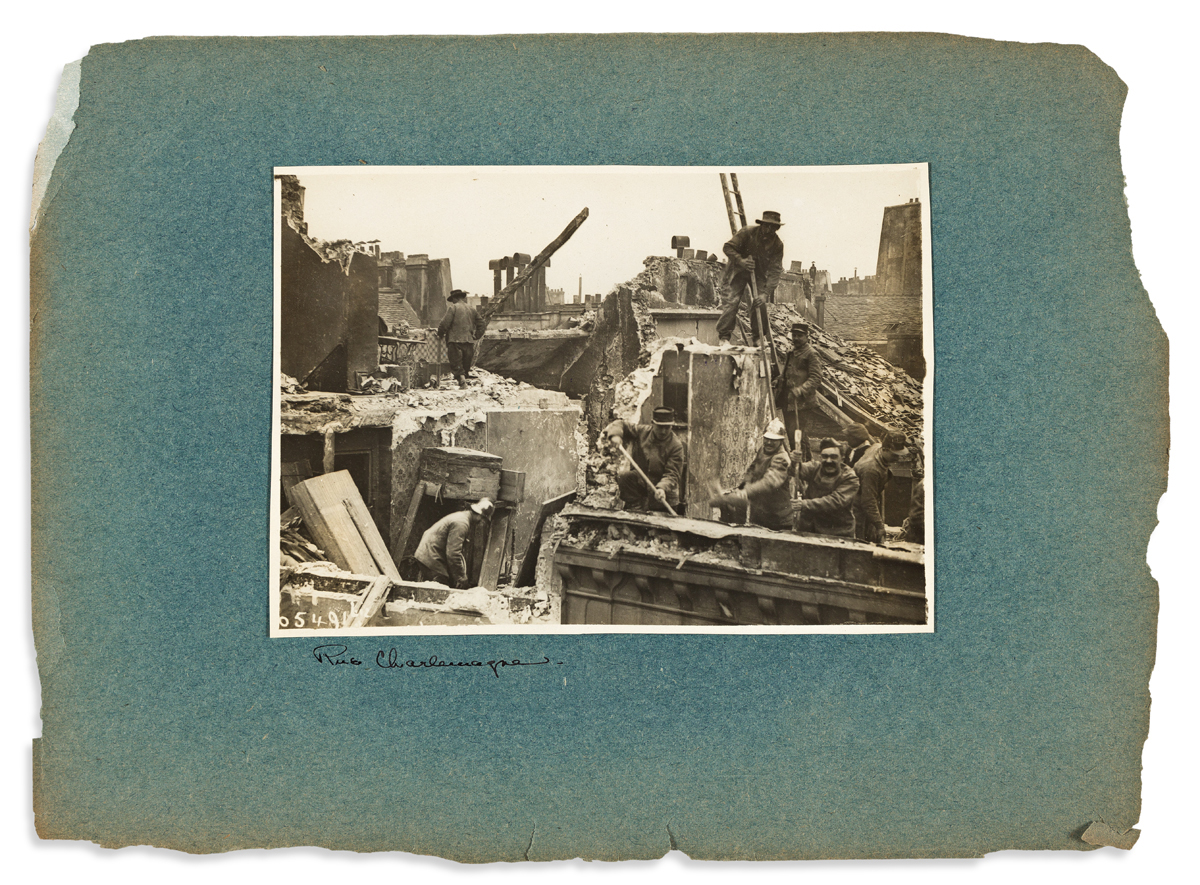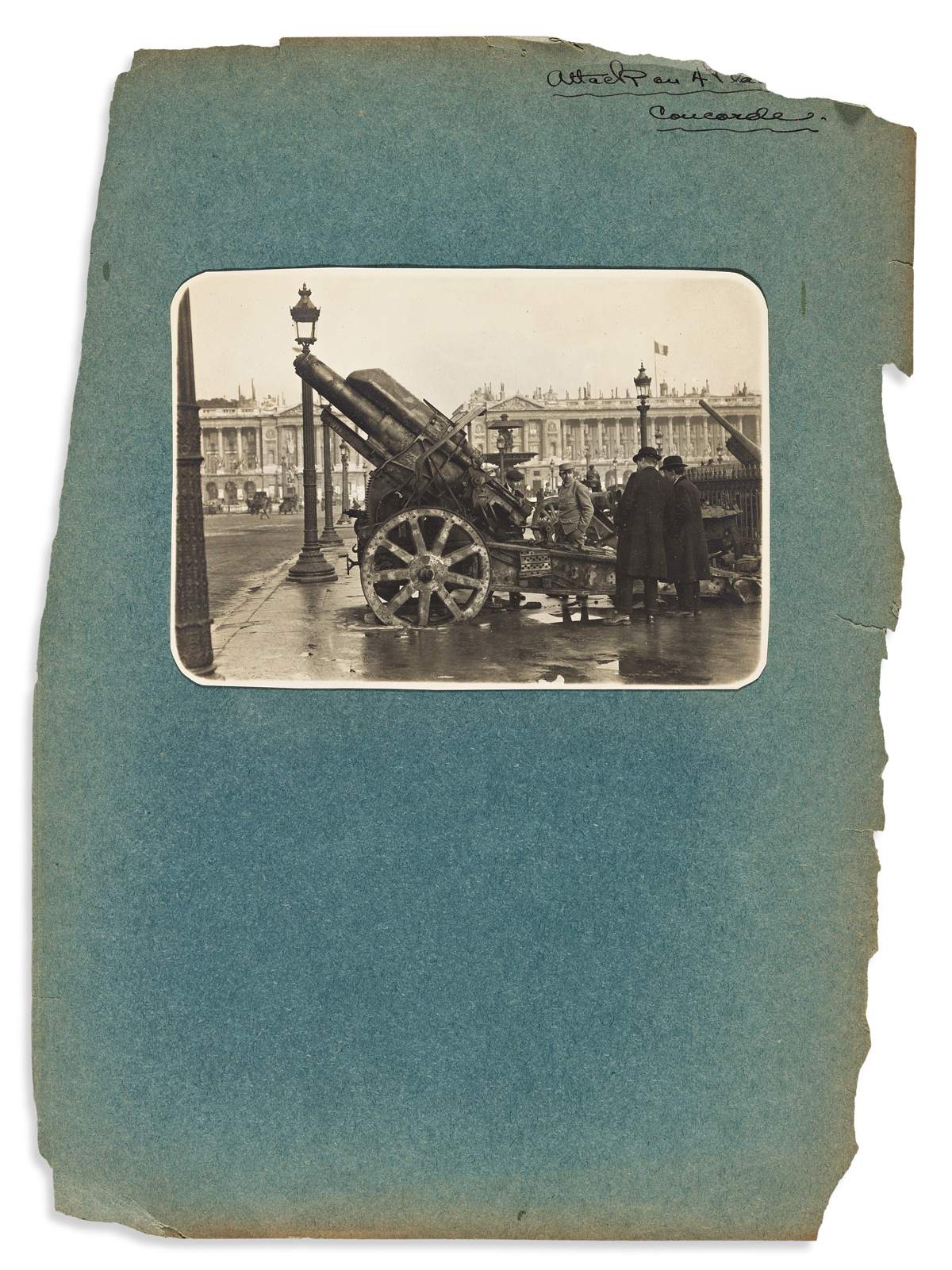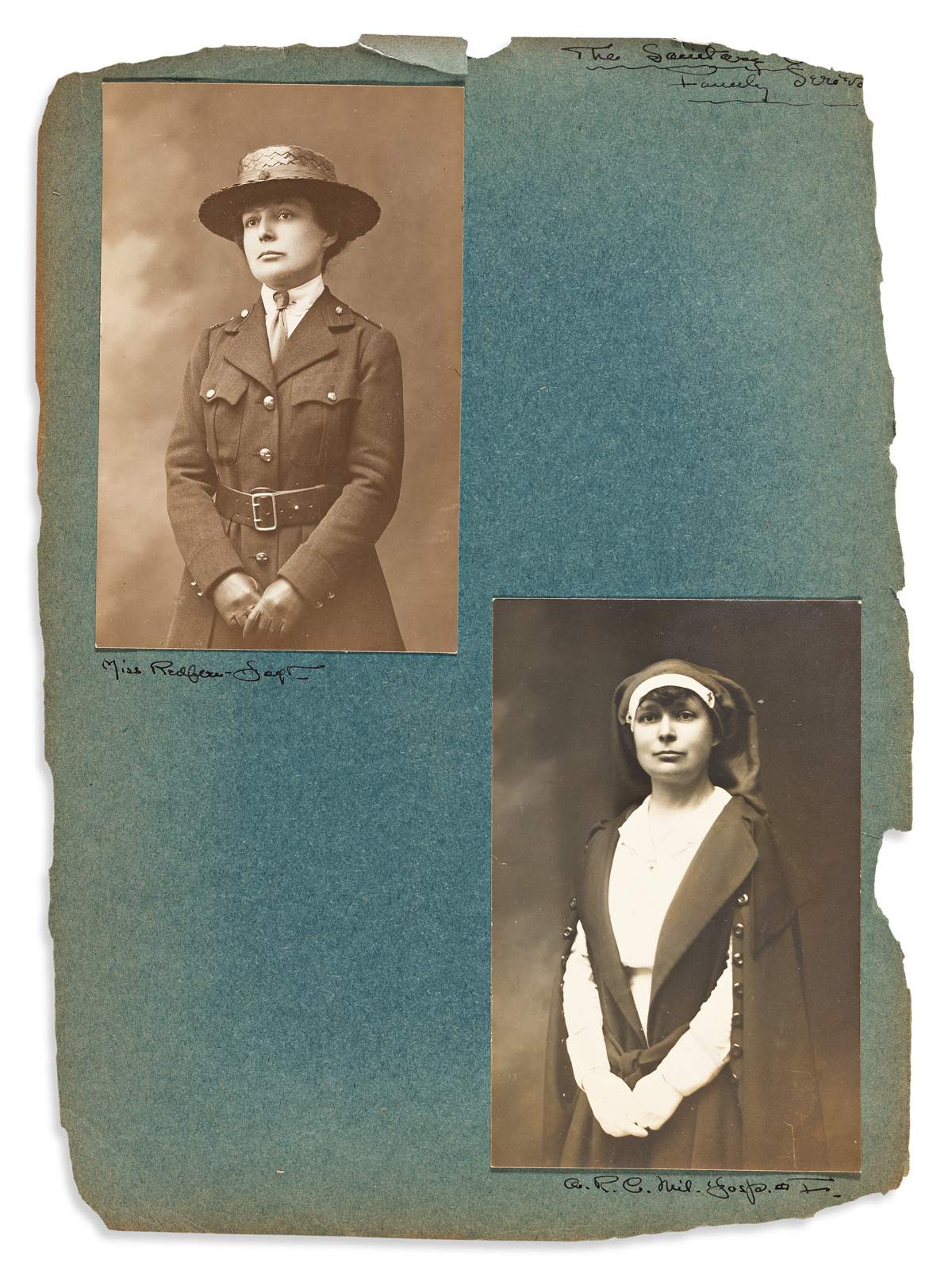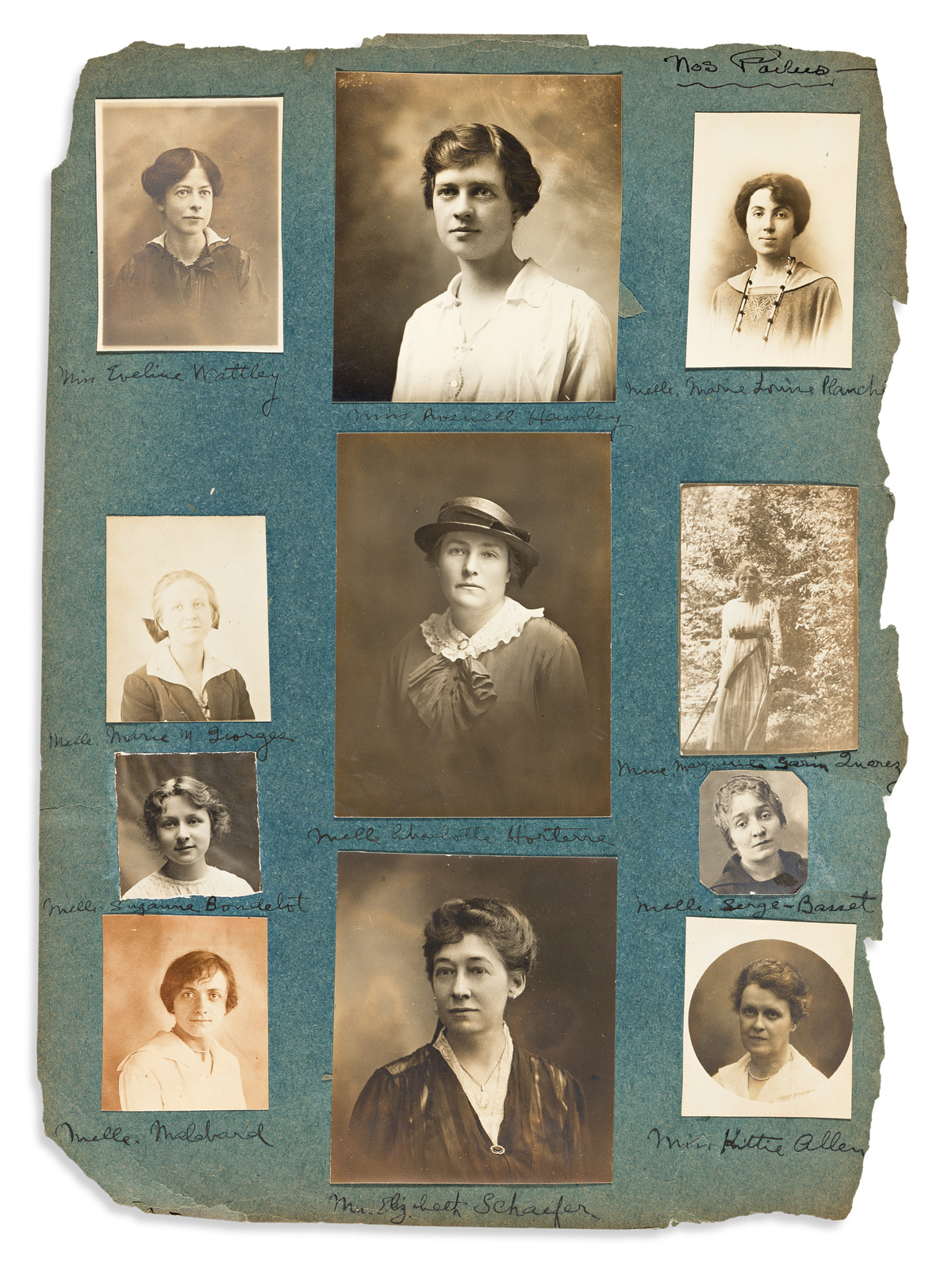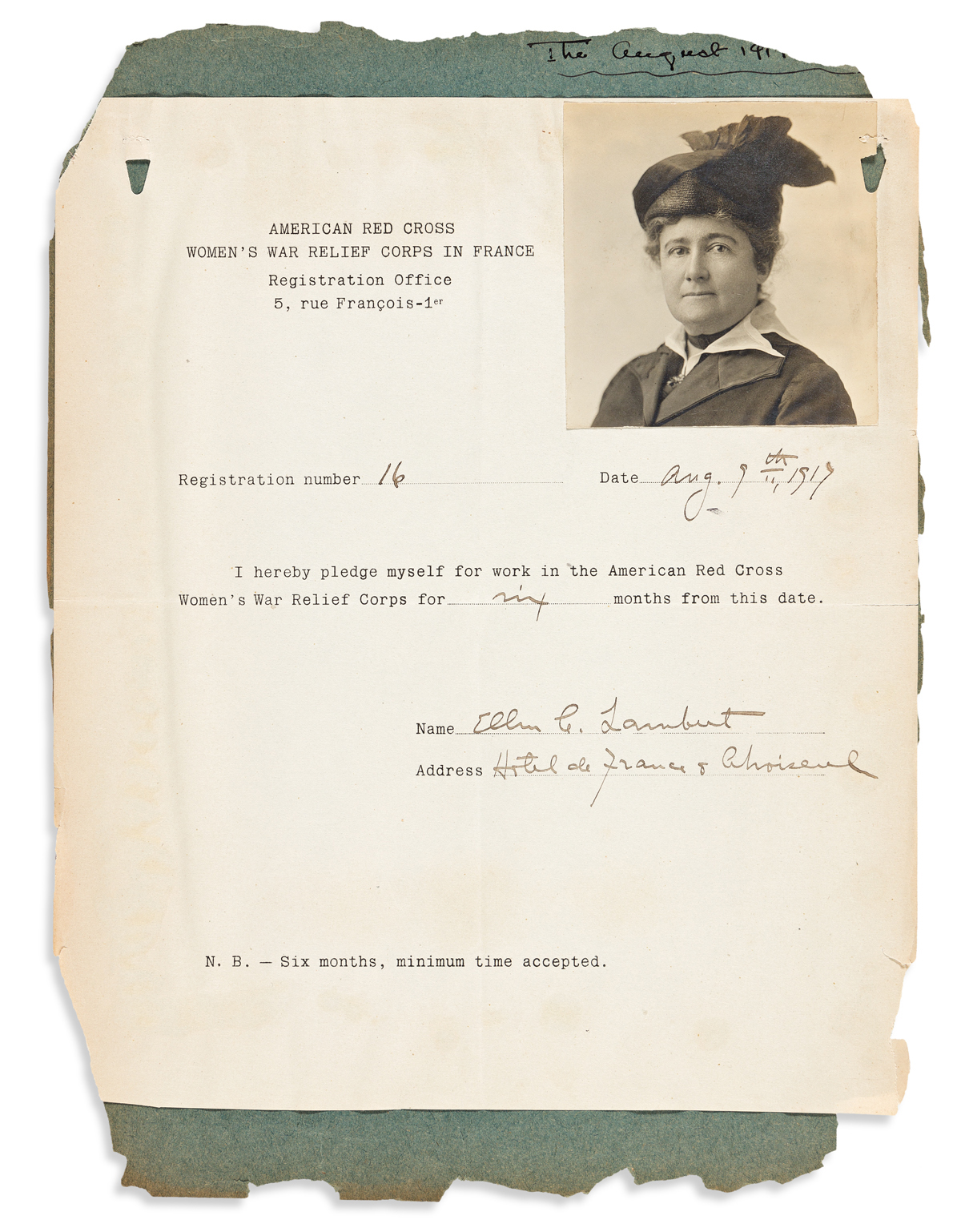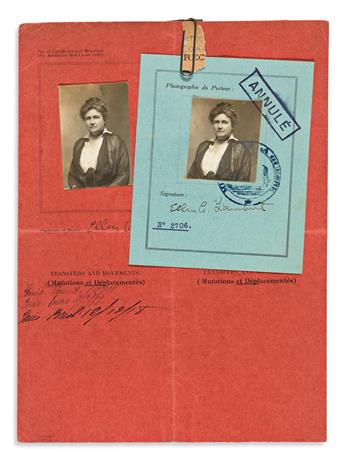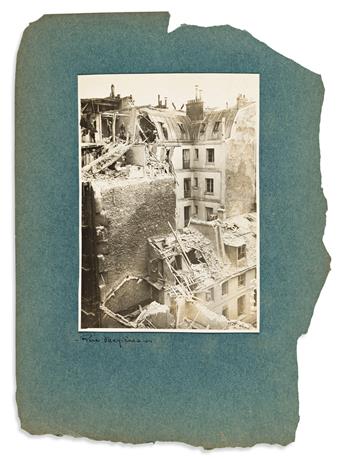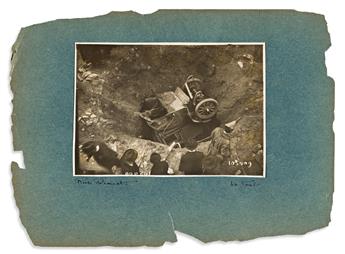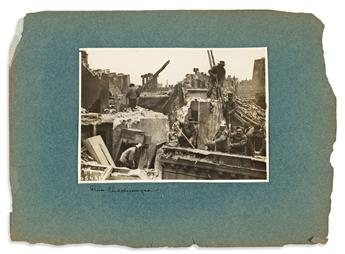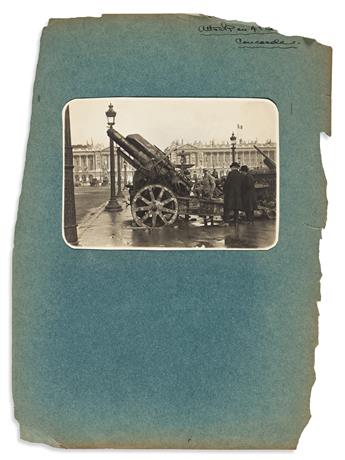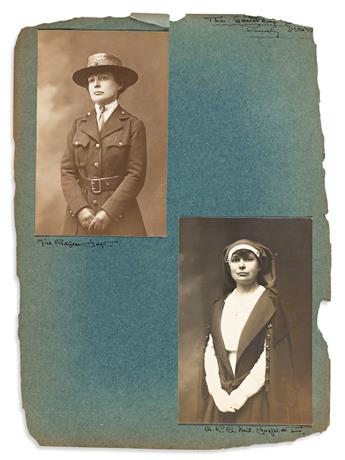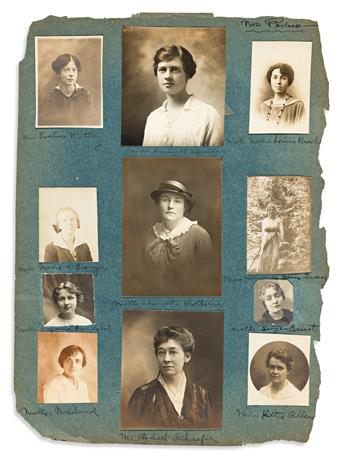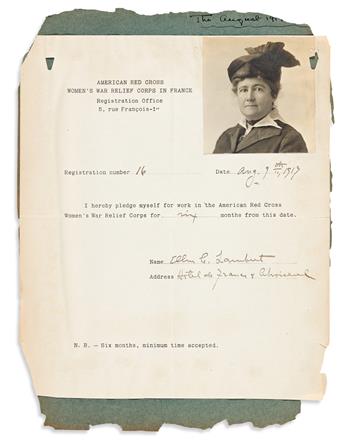Sale 2576 - Lot 61
Unsold
Estimate: $ 1,000 - $ 1,500
Cheney Lambert, Ellen Waitstill (1862-1938)
Photo & Ephemera Album, Paris during the First World War.
Paris, May 1917-December 1918.
Folio format scrapbook containing a variety of material, including: a group photo signed by all sitters of Cheney's husband Dr. Alexander Lambert (1861-1939) and the all-male staff of the American Red Cross's civilian relief corps; a signed photograph of Dr. Lambert in uniform dated 1917; Cheney's signed American Red Cross Women's War Relief Corps in France registration, with photo attached; three identity cards with photos used in-country by Cheney during the war; approximately twenty individual photographs of women on Cheney's staff, including several showing them at work in their offices; approximately fourteen blank documents generated and used by the Women's War Relief Corps; Cheney's Foreign Service Certificate; two letters thanking Cheney for her service upon her departure from France in 1919 typed and signed by her superiors at the American Red Cross; approximately twenty-seven period photographs showing the destruction done to Paris by German bombs, many by Maurice-Louis Branger (1874-1950); Barrecchia's large folding 1918 map, The Western Theatre of the European War; [together with] a typewritten account written by Cheney describing her time in Paris; a carbon of a typed account of a voyage through France after the Armistice written by one of Lambert's male colleagues; [and] some other related ephemera; including a letter from Harriet Chalmers Bliss Ford (1876-1964) dated 1952, sent along to a descendant of Cheney and Lambert explaining the scrapbook's contents and captions, as she was the original compiler; the album pages extremely chipped and chipping, most material described above mounted on album pages could be removed by a qualified conservator; 12 1/2 x 9 in. overall
In her typed narrative of seven pages, Cheney provides great detailed descriptions of her work, including descriptions of its offices, organizational systems (forms, ID cards, interview processes, job assignment strategy), growth (they need larger offices and were forced to move more than once), challenges (spies, young women with no skills, rich heiresses who wanted to look important), and successes (placing the right person in the right job, and serving the cause while helping women earn money in respectable pursuits). She also mentions many of those who served by name, French and Americans alike.
She writes, "I feel as if I ought to say something about deserted Paris at the time of the near approach of the Germans, when we had air raids by night and Bertha by day, and knew that if the enemy got a very few miles nearer we might all have to be evacuated at a moment's notice. We made light of it at the time, and there was very little panic, but thousands and thousands of rich and poor departed for the Provinces, and the streets and shops were deserted, the schools closed, and only those who had business to keep them, or nowhere to go, remained behind."
As this account is presumed unpublished, and not much has been written regarding the work of the Corps, this scrapbook should prove an important source of primary historical material.
Harriet Bliss Ford was asked to accompany her husband to France as well. The two women met on the steamer and worked closely together, with Bliss Ford as Cheney's assistant. They lived at the Hôtel de France et Choiseul for the eighteen months of their service. Bliss Ford was graduated from Smith College in 1899, served as an editor at the Century Magazine, and on the board of trustees of her Alma Mater.
Photo & Ephemera Album, Paris during the First World War.
Paris, May 1917-December 1918.
Folio format scrapbook containing a variety of material, including: a group photo signed by all sitters of Cheney's husband Dr. Alexander Lambert (1861-1939) and the all-male staff of the American Red Cross's civilian relief corps; a signed photograph of Dr. Lambert in uniform dated 1917; Cheney's signed American Red Cross Women's War Relief Corps in France registration, with photo attached; three identity cards with photos used in-country by Cheney during the war; approximately twenty individual photographs of women on Cheney's staff, including several showing them at work in their offices; approximately fourteen blank documents generated and used by the Women's War Relief Corps; Cheney's Foreign Service Certificate; two letters thanking Cheney for her service upon her departure from France in 1919 typed and signed by her superiors at the American Red Cross; approximately twenty-seven period photographs showing the destruction done to Paris by German bombs, many by Maurice-Louis Branger (1874-1950); Barrecchia's large folding 1918 map, The Western Theatre of the European War; [together with] a typewritten account written by Cheney describing her time in Paris; a carbon of a typed account of a voyage through France after the Armistice written by one of Lambert's male colleagues; [and] some other related ephemera; including a letter from Harriet Chalmers Bliss Ford (1876-1964) dated 1952, sent along to a descendant of Cheney and Lambert explaining the scrapbook's contents and captions, as she was the original compiler; the album pages extremely chipped and chipping, most material described above mounted on album pages could be removed by a qualified conservator; 12 1/2 x 9 in. overall
In her typed narrative of seven pages, Cheney provides great detailed descriptions of her work, including descriptions of its offices, organizational systems (forms, ID cards, interview processes, job assignment strategy), growth (they need larger offices and were forced to move more than once), challenges (spies, young women with no skills, rich heiresses who wanted to look important), and successes (placing the right person in the right job, and serving the cause while helping women earn money in respectable pursuits). She also mentions many of those who served by name, French and Americans alike.
She writes, "I feel as if I ought to say something about deserted Paris at the time of the near approach of the Germans, when we had air raids by night and Bertha by day, and knew that if the enemy got a very few miles nearer we might all have to be evacuated at a moment's notice. We made light of it at the time, and there was very little panic, but thousands and thousands of rich and poor departed for the Provinces, and the streets and shops were deserted, the schools closed, and only those who had business to keep them, or nowhere to go, remained behind."
As this account is presumed unpublished, and not much has been written regarding the work of the Corps, this scrapbook should prove an important source of primary historical material.
Harriet Bliss Ford was asked to accompany her husband to France as well. The two women met on the steamer and worked closely together, with Bliss Ford as Cheney's assistant. They lived at the Hôtel de France et Choiseul for the eighteen months of their service. Bliss Ford was graduated from Smith College in 1899, served as an editor at the Century Magazine, and on the board of trustees of her Alma Mater.
Exhibition Hours
Exhibition Hours
Aliquam vulputate ornare congue. Vestibulum maximus, libero in placerat faucibus, risus nisl molestie massa, ut maximus metus lectus vel lorem.



